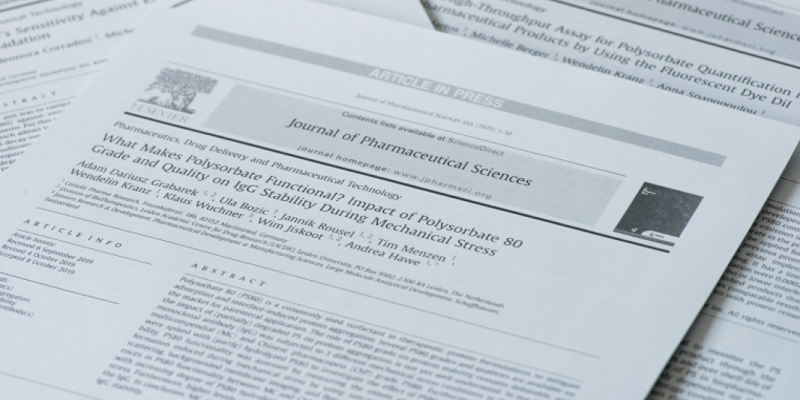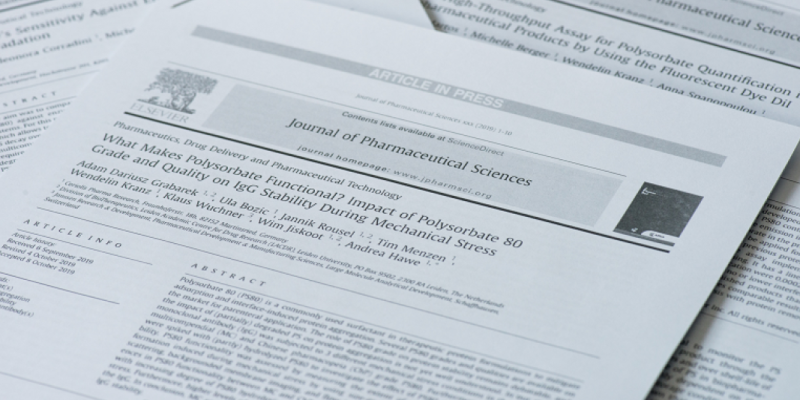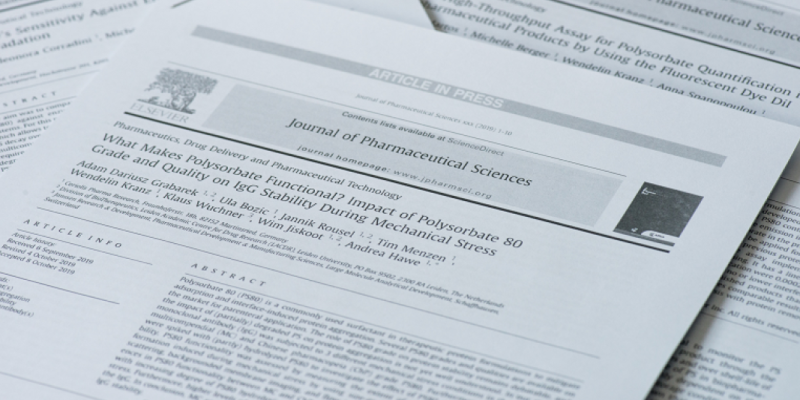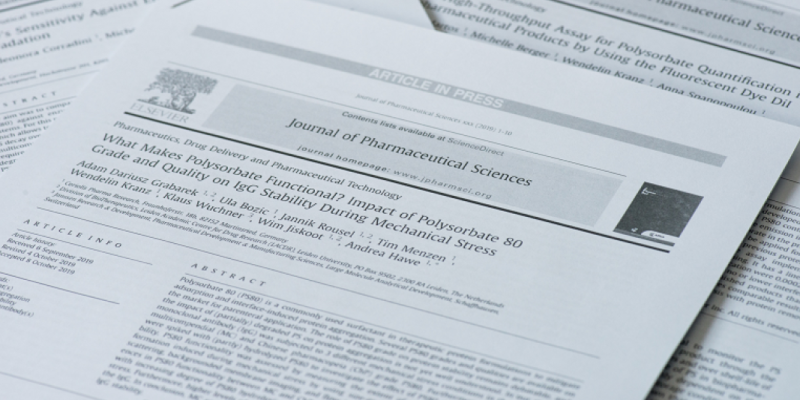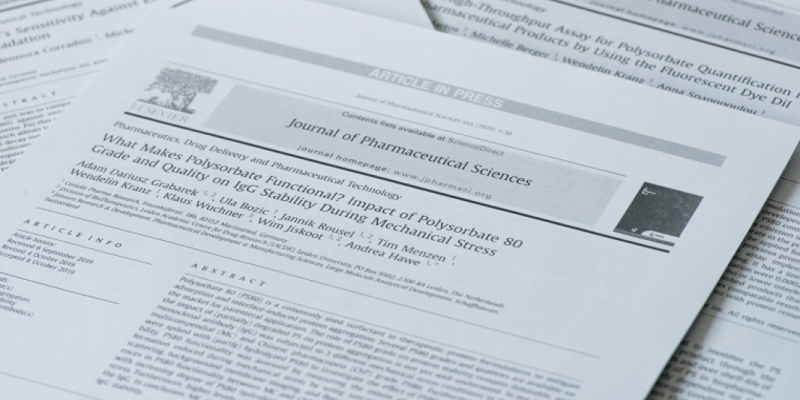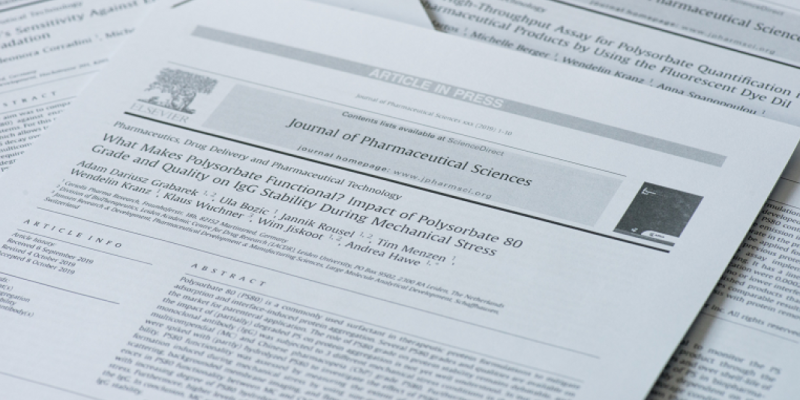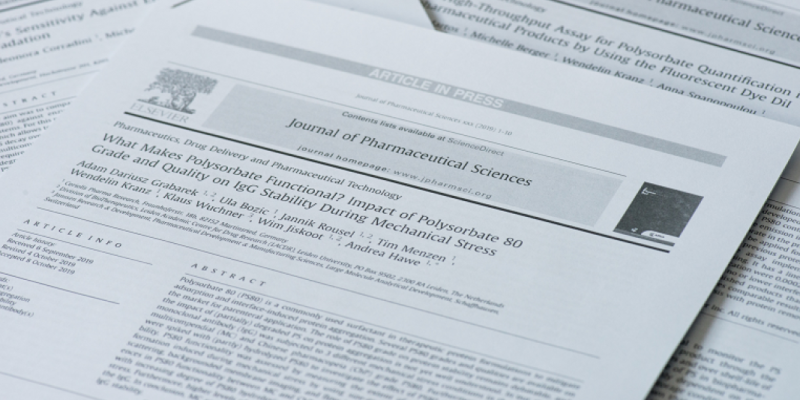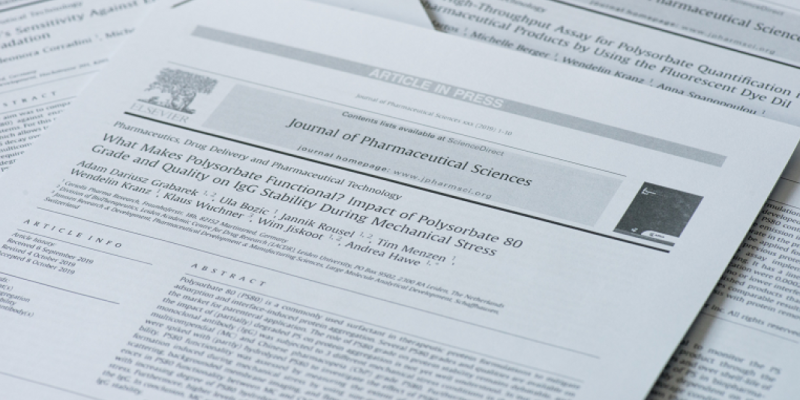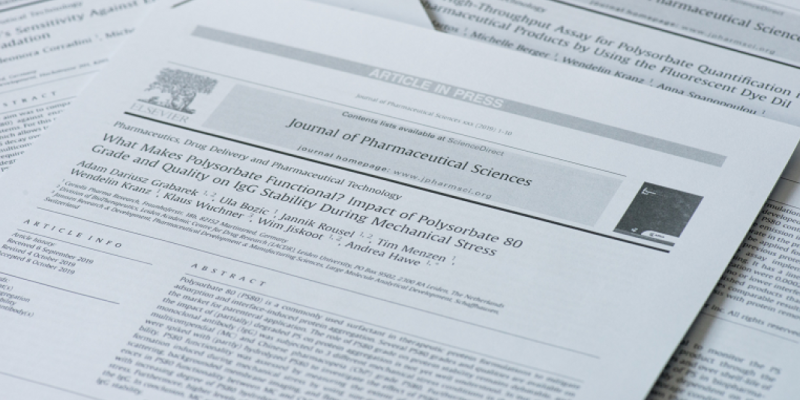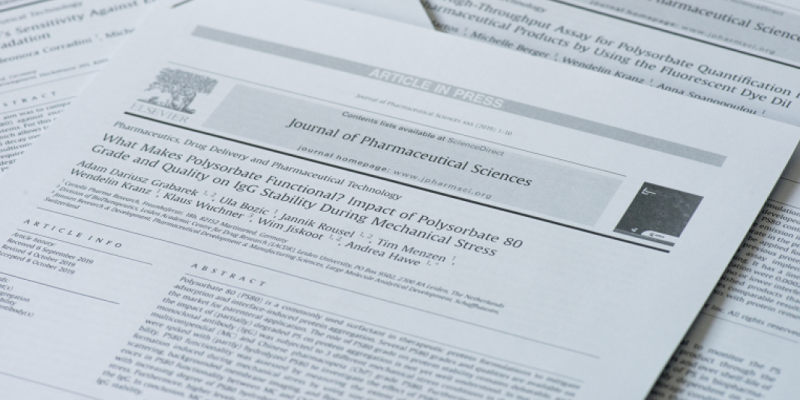Silicone Oil-Free Polymer Syringes for the Storage of Therapeutic Proteins.
J Pharm Sci. 2019 MAR
Prefilled syringes are a popular choice for the delivery of biopharmaceuticals. However, glass syringes might not be the optimal primary packaging material for all biopharmaceuticals. There is evidence that the necessary lubricant silicone oil in glass syringes can interact with proteins and can be shed from the surface into the product solution. In recent years, silicone oil-free polymer syringes were developed. Despite several advantages, however, a major shortcoming of these polymer systems is their relatively high gas permeability, which might be a limitation for the storage of oxygen sensitive biopharmaceuticals. So far, no long-term protein stability studies regarding such polymer systems have been published. In this study, 2 therapeutic proteins were stored in glass syringes and in silicone oil-free polymer syringes. In addition, polymer syringes stored in nitrogen-filled aluminum pouches or covered with oxygen-tight labels were included. Similar chemical protein stability was achieved at 4°C for all syringes. However, in contrast to the polymer syringes, high particle counts were observed in the glass syringes. Polymer syringes stored in nitrogen-filled aluminum pouches presented a promising alternative for the storage of biopharmaceuticals as they do not expose patients to silicone oil and silicone oil-protein aggregates.
J Pharm Sci. 2019 MAR
https://jpharmsci.org/article/S0022-3549(18)30681-6/fulltext

